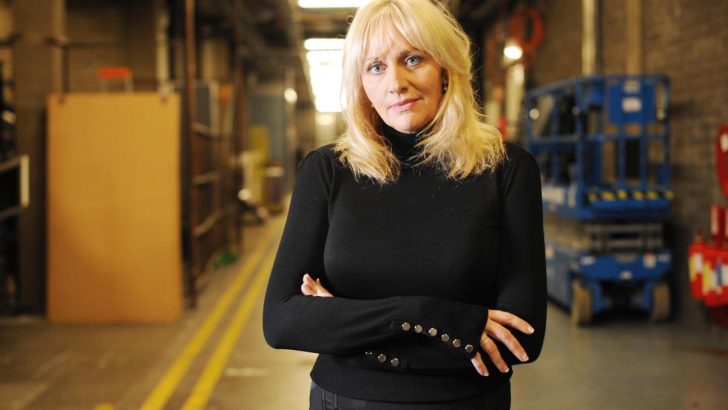I listen with interest to debates about gender, sexism and political correctness, and often these are interrelated.
On Prime Time (RTÉ1) on Tuesday of last week, Minister Mary Mitchell O’Connor defended her creation of women-only professorships – it’s a “positive discrimination” measure that has met with everything from whole-hearted support to derision.
Prof. Patricia Casey thought jobs should be given on merit, and that blaming sexism for imbalances at third level was too glib and simplistic. She instanced other countries, like Norway, where, despite female-friendly work environments, the imbalance was still there. I would have liked to hear her speaking of the other reasons for this but the discussion was quite short – presenter Miriam O’Callaghan was conscious of this and promised a return to the topic.
Minister O’Connor claimed she had third-level bodies on her side, but official and supposedly representative bodies often fall in rather easily behind government policies, fearing perhaps for future funding, or driven by the ideologies of those in high positions.
Miriam did make some challenging points – suggesting to the Minister that a person in one these new jobs might as well have “token woman” written on her door, and to Prof. Casey that something radical needed to be done to redress the imbalance.
Speaking of positive discrimination or affirmation action, a guest on the Pat Kenny Show (Newstalk) that morning suggested tongue in cheek that Irish people be given such favoured treatment on American campuses as they had a sense of humour and in their resilience could withstand the mollycoddling that goes on in these institutions (I’m not so sure!).
Jonathan Haidt, co-author, with Greg Lukianoff, of the book The Coddling of the American Mind, introduced us to the world of trigger warnings, safe spaces and identity politics. He wasn’t so much attacking political correctness of this type but seeking to understand and explain it.
He identified 2014 as the year when this “increase in fragility” showed up in American college campuses – the students were of the ‘iGen’ or ‘GenZ’, the first generation that had grown up with social media, the first generation that had been overprotected, e.g. not allowed out unsupervised from fear of abduction – an ungrounded fear whipped up by media panics even though crime figures were dropping.
He saw a generation being set up for failure, with the disempowering of young people, who were deprived of resilience, independence and the skills of conflict resolution. He linked it all to increases among young people especially teenage girls, of depression, self-harm and suicide.
Declaring himself a fan of “viewpoint diversity”, he identified colleges moving from leaning left, to extreme left, with the creating of sacred victim groups and a new orthodoxy, with almost no presence of viewpoints from the right.
Campaigns
After recent referendum campaigns here it rang a bell when he identified a new vindictiveness – people showing how aggressive they could be in defence of alleged victims. Haidt saw President Trump as a symptom of this “gigantic polarisation”, where we vote against what we hate instead of for what we believe in, and saw him as a “disaster for political civility”. I find it hard to disagree with that.
The whole women and glass ceiling stuff came up on The Late Debate (RTÉ Radio 1) last Thursday. One of the guests was Caroline Slocock, author and former private secretary to Margaret Thatcher. I’m not a fan of Thatcher and neither was Slocock, at least not a fan of her political views or her legacy.
Slocock did seem to admire her work ethic – she was powerful enough to change the world – and humanised her to some extent. Comparisons were made with current PM Theresa May, and the latter came out better from the comparison. Presenter Katie Hannon acknowledged the resilience May has shown of late – “you can only look on in some awe at the fact that she’s still standing”.
It struck me that when women in politics are admired in the media the adulation is mostly for those who are left leaning or liberal – so, Hilary Clinton becomes a media darling, while the likes of Thatcher, May and Condoleezza Rice (Secretary of State during the Presidency of George W. Bush) get little credit for breaking through the glass ceiling. In fact they often get abuse, but funny enough the abusers rarely if ever get called out for misogyny. Sauce for the goose.
Pick of the week
Michael, They’ve Shot Them
RTÉ1, Saturday, December 1, 7.25 am
During World War One, the executions of the leaders of Ireland’s Easter Rising influenced the Irish Archbishop of Melbourne, Daniel Mannix, to take a public stance against conscription facing Australians.
Convinced
EWTN, Saturday, December 1, 8 pm
While discerning his own conversion, Donald Johnson met people who overcame obstacles and opposition to fully embrace their Catholic faith.
Walking The Walk
RTÉ1, Thursday, December 6, 10.15 pm
The walk of Fr Tony Coote to raise awareness and funds for sufferers of Motor Neurone disease.


 Brendan O’Regan
Brendan O’Regan Miriam O'Callaghan, presenter of RTE's Prime Time
Miriam O'Callaghan, presenter of RTE's Prime Time 